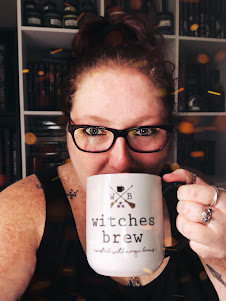Better not tell you now.
As a practicing witch, I’ve got more than my share of crystals and other divinatory tools laying around my house. But if there’s one thing I’ve learned during my tenure in publishing for the last 12 years, it’s that the future of this industry can’t be seen in a crystal ball.
Its infamous cousin the Magic 8 Ball with its dependable twenty different answers, though… Well, that’s a different story.
Cannot Predict Now. Concentrate And Ask Again.
Depending on the day, week, year, or time zone you’re in, anyone you talk to in the industry is going to have a different take on where the future of publishing lies as a whole, and what the next big thing is going to be. Break it down further to different genres and their sub-genres and niches, and you’ve got yourself a debate that’s been happening since the dawn of clay tablets with cuneiform 5,500 years ago.
But for the sake of my argument here, I’ll stick to the last two centuries.
It Is Certain. Without A Doubt. Yes.
Change is pretty much the only thing you can count on in publishing. In 2013, the “Big 6” became the “Big 5” with Random House and Penguin merging. And most recently, in 2020, Penguin Random House announced their plans to purchase Simon & Schuster, which would have turned the Big 5 into the “Big 4.”
Buuuuut thanks to the US Department of Justice tossing in an unexpected plot twist, the future of the “Big 5” is anything but certain. How’d they do that? Oh, ya know, just by suing them to block the merger, stating if the biggest publisher in the world Penguin Random House (PRH) was to acquire Simon & Schuster (S&S), the fourth largest publisher in the US - “the proposed merger would eliminate this important competition, resulting in lower advances for authors and ultimately fewer books and less variety for consumers.”
Very Doubtful. My Sources Say No.
Less variety and fewer books, you say? Respectfully, I’m calling bullshit.
Before the pandemic hit, self publishing was up 40% in 2018 alone according to a report published by Bowker in 2019. So when the larger publishers came to a screeching grinding halt with book releases thanks to the ‘Vid in 2020, they left quite the vacuum for readers out there, who were hungry for books while under lockdown.
And suddenly, readers were discovering more self-published authors and their works. Not only that, they were finding that the stigma surrounding books that are self-published, or only available on Amazon are “less than,” “poorly edited,” etc. - is and has always been - inaccurate AF.
Reply Hazy, Try Again.
Think about it this way, with change as the only constant when it comes to publishing wouldn’t it be correct to say that if the industry is worried “about a merged company that publishes perhaps 33 percent of new books, then surely it’s correct to worry more about the fact that Amazon now sells 49 percent of them.”?
Honestly, this self-published author isn’t so sure. Considering past experiences with the “Big” publishing houses, they’ve proven time and time again that their ability to adapt to any sort of shift in the industry, has been at the breakneck speed of a glacier.
So do I think the merger of two of the “Big 5” companies is going to have a negative effect on self-published authors? See below.
My Reply is No. Don’t Count On It.
If anything, I think despite their less than agile and at times overly obvious “for the sake of it” moves to join this century with efforts toward inclusion of new genres and diversity in both books and the authors who pen them, the fact remains that we’re in an era where consumer consumption is at an all time high. And when all it takes is the click of a button to turn any plan - no matter how long in the making - into complete and utter chaos… Watching large corporations try to keep up with self-published authors' ability to turn on a dime when trends change, is somewhat akin to watching a bear attempt ballet.
For those of us who make our living creating fantasy worlds, it’s certainly an experience to watch as former formidable foes tremble at the thought of authors no longer being dependent upon them to release their works to the masses.
Until next time…
Stay Wicked,
Graceley Knox
Author Bio:
Graceley Knox is a USA Today bestselling author of over 35 novels featuring wicked paranormal and fantasy romances, and the founder of Paper Myths Media. Graceley has been in the publishing industry for over twelve years in some way or another, wearing pretty much every hat other than that of editor and cover designer. She’s also 100% addicted to coffee and snarky mugs, and is determined to one day have a library that would make Belle cry. As a self-professed book-obsessed word witch, Graceley is fascinated with witchcraft, mythology, lore, and, of course, fantasy worlds! When she’s not caught up in her current hyper-fixation (shout out to her fellow ADHD Warriors!) she’s either writing books or reading them… Or talking about them, or taking photos of them for her bookstagram. Graceley is also a Ravenclaw who’s been known to binge-watch tv-shows featuring strong female leads while cuddling with her fur-babies.
You can connect with Graceley here: https://linktr.ee/authorgraceleyknox





